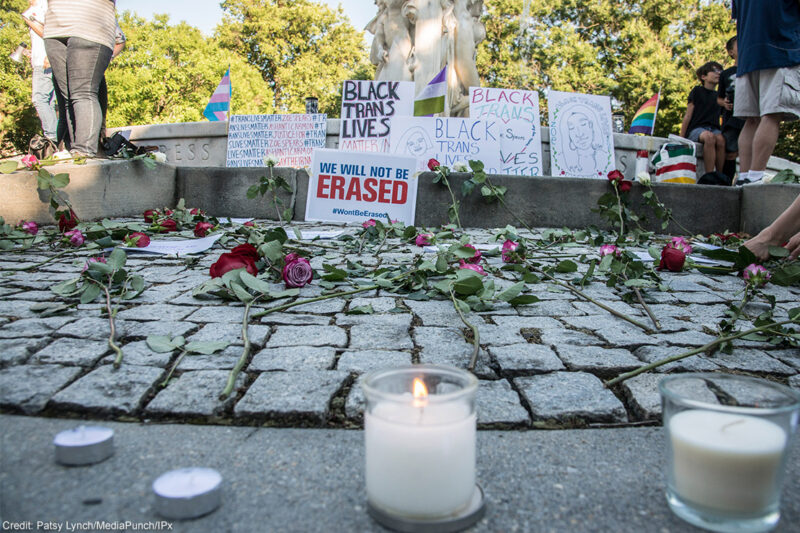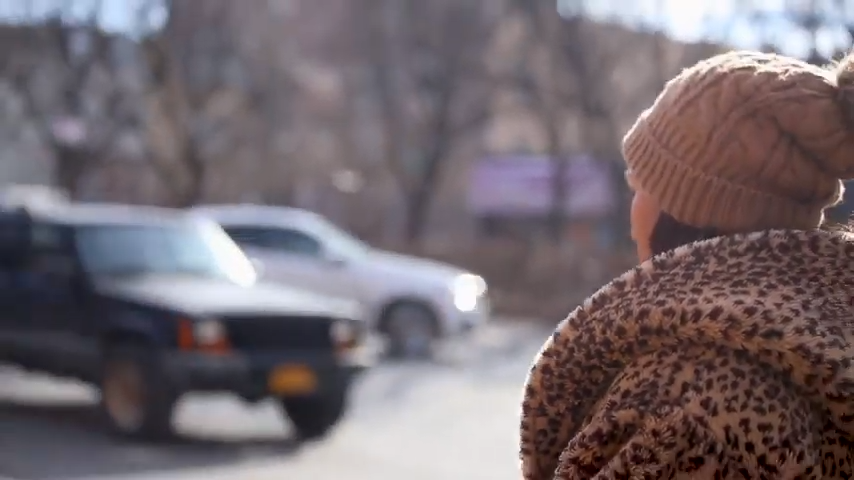Remembrance, Resilience, and Response: Addressing An Epidemic of Violence Against Trans and Non-Binary People


Each year on Nov. 20, Trans Day of Remembrance (TDOR) gives us an opportunity to remember and honor the trans and non-binary people who have been killed at the hands of transphobic and transmisogynistic violence. In 2020, over 350 trans and non-binary people have been killed around the world, the large majority of whom were trans women and trans feminine people. Within the United States, there have been at least 28 documented cases of trans and non-binary people who have been murdered this year, with Transrespect Versus Transphobia Worldwide (TvT) reporting that almost 80 percent were people of color. While TDOR largely focuses on those we have lost to murder, it is also important to recognize trans and non-binary people who have died because of medical neglect, lack of access to shelter, suicide, and other preventable causes. This increasing and alarming rate of death has been labeled a pandemic, and continues to impact trans and non-binary communities, especially Black trans and non-binary communities, in every corner of the United States.
In addition to high murder rates, trans and non-binary people also face widespread physical and sexual violence, especially from law enforcement. There is a long history of trans and non-binary people being targeted by the police and the criminal legal system as a whole. As maya finoh, a Black non-binary abolitionist and cultural worker, reminds us, “The [U.S. criminal legal system] was absolutely designed to warehouse us, to surveil us, to police us…specifically [those of] us who are Black…immigrants…queer, trans, et cetera.” Research conducted by the NYC Anti-Violence Project concluded that trans and non-binary people are seven times more likely to experience physical police violence as compared to cisgender people. Black trans and non-binary people continue to experience the highest rates of police brutality and incarceration in the LGBTQ community, and are even criminalized for defending themselves against anti-Black, transphobic, and transmisogynyistic attacks.

Across trans and non-binary communities, law enforcement officers have often abused their power to violently enforce the gender binary and punish gender non-conformity. This often leads to police criminalizing trans and non-binary people for non-illegal activity, such as using public restrooms or standing on street corners. If trans and non-binary people are not killed or harmed by police officers, then they are arrested or incarcerated for “crimes” like false personation, suspicion of sex work, or disorderly conduct, simply for being who they are. Once incarcerated, trans and non-binary people are often forced into facilities that do not align with their gender, denied access to gender-affirming health care, and sexually harassed and assaulted at disproportionate rates. The ACLU’s legal and policy work on rights for trans and non-binary people and sex work decriminalization demonstrates how anti-trans violence can be fought at a structural level, and has resulted in tangible change for trans and non-binary people.
In the face of so much violence and death, trans and non-binary people on the ground continue to mobilize to support and protect their communities. This includes actions such as rallies, like the March for Black Trans Lives held this past summer in Brooklyn, and the creation of mutual aid funds and networks, which assist trans and non-binary people in accessing necessary resources. Trans and non-binary people also continue to be vocal about their needs and the conditions required to survive and thrive in a world filled with transphobic and transmisogynstic violence. The Trans Agenda for Liberation’s “Black Trans Women and Black Trans Femmes: Leading & Living Fiercely,” envisions concrete solutions to combat the discrimination and violence that Black trans women and Black trans feminine people experience, and projects like Trans Day of Resilience provide space for community empowerment and connection among trans and non-binary people of color.
It is essential for us to celebrate, support, and care for the trans and non-binary people who are still living as we mourn and honor those who have passed. Some concrete actions include:
- Policy: Educate yourself about the decriminalization of sex work, and how decriminalization would impact the lives of trans and non-binary people. Get involved in decriminalization efforts in your area, or if there are none, work with local community organizers to bring this issue to their attention.
- Know Your Rights: Research your rights for interacting with law enforcement, and learn ways to safely de-escalate situations in which police are verbally or physically harassing trans and non-binary people.
- Mutual Aid: Find mutual aid networks in your city and state, and plug into the needs that trans and non-binary have named as priorities for their communities. You can also contribute to mutual aid funds for trans and non-binary people to ensure that your money will directly benefit their survival, and donate to bail funds for trans and non-binary people who cannot afford cash bail.
On this Trans Day of Remembrance, we honor the following trans and non-binary people. May they rest in power.
- Aerrion Burnett, Independence, MO
- Aja Raquell Rhone-Spears, Portland, OR
- Alexa Neulisa Luciano Ruiz, Toa Baja, Puerto Rico
- Angel Haynes, Memphis, TN
- Ashley Moore, Newark, NJ
- Brayla Stone, Sherwood, AR
- Bree “Nuk” Black, Pompano Beach, FL
- Brian “Egypt” Powers, Akron, OH
- Dominique “Rem’mie” Fells, Philadelphia, PA
- Draya McCarty, Baton Rouge, LA
- Dustin Parker, McAlester, OK
- Felycya Harris, August, GA
- Helle Jae O’Regan, San Antonio, TX
- Jayne Thompson, Mesa County, CO
- Johanna Metzger, Baltimore, MD
- Kee Sam, Lafayette, LA
- Layla Pelaez Sánchez, Puerto Rico,
- Lexi, New York, NY
- Marilyn Cazares, Brawley, CA
- Merci Mack, Dallas, TX
- Mia Green, West Philadelphia, PA
- Michellyn Ramos Vargas, San Germán, Puerto Rico
- Monika Diamond, Charlotte, NC
- Nina Pop, Sikeston, MO
- Penélope Díaz Ramírez, Bayamon, Puerto Rico
- Queasha D. Hardy, Baton Rouge, LA
- Riah Milton, Liberty Township, OH
- Sara Blackwood, Indianapolis, IN
- Selena Reyes Hernandez, Chicago, IL
- Serena Angelique Velázquez Ramos, Puerto Rico,
- Shaki Peters, Amite City, LA
- Summer Taylor, Seattle, WA
- Tatiana Hall, Philadelphia, PA
- Tiffany Harris, The Bronx, NY
- Tony McDade, Tallahassee, FL
- Yampi Méndez Arocho, Moca, Puerto Rico
- Yunieski Carey Herrera, Miami, FL
and the other 330 trans and non-binary people murdered around the world.
Source: Anti-Violence Project and news reports.

